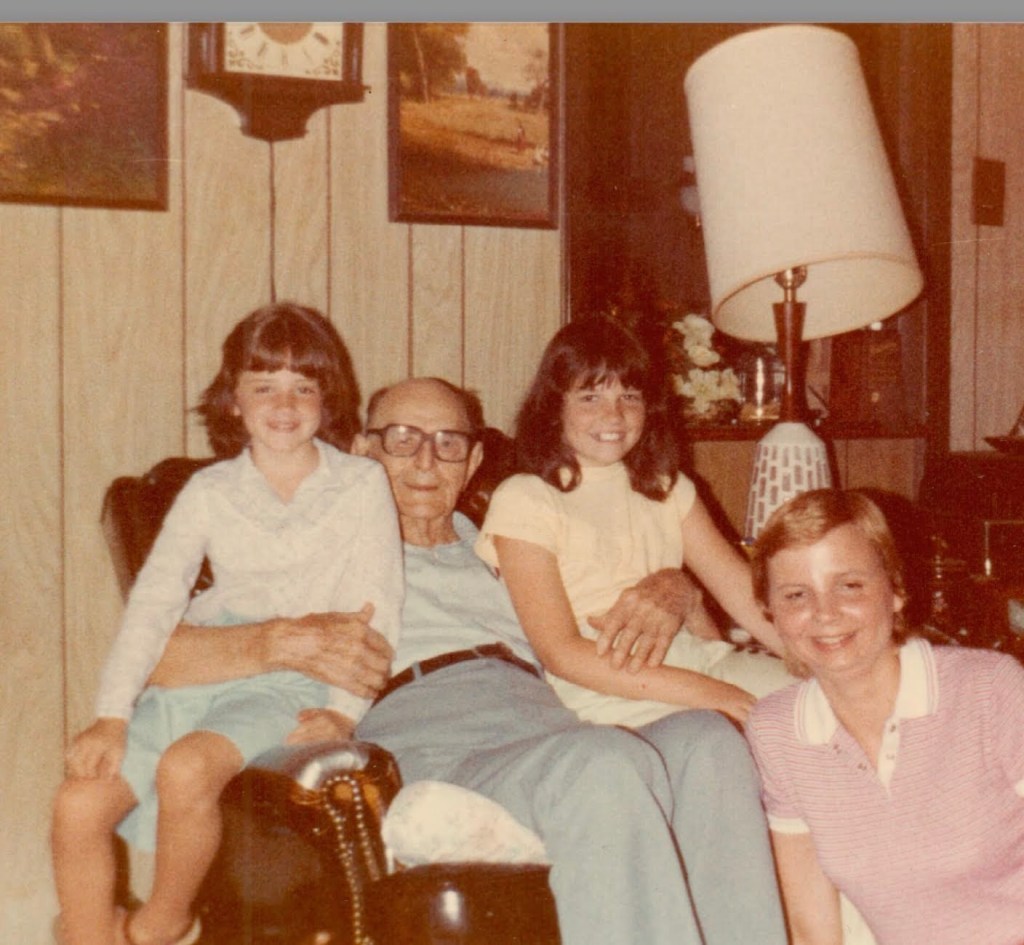
Once I began working as a teacher my life thankfully settled into a tightly followed routine. Since none of us were morning people we’d scurry around at the beginning of the day getting everyone off to work and school. Luckily our girls only had to walk to the corner to catch a bus and Mike and I each had a car. I often left home before anyone else because I needed to be on campus early enough to look after the students as they arrived.
After a wonderful first year of teaching at St. Christopher’s School I landed a job in the Pasadena Independent School District where I was in for culture shock beyond anything I had imagined. I had learned how to design lessons at St. Christophers and it was now time for me to learn how to manage the behavior of students. Luckily I had an extraordinary principal who coached me with wisdom and great kindness. I often think that I became a real educator under her tutelage.
Many of my students were generally from low income families who often moved from one apartment complex to another just before being evicted for failure to pay rent. My grade book attested to the comings and goings of my changing roster of youngsters. While troubled children were not the norm, there was a more than a usual share of kids from difficult backgrounds. As I became familiar with my group of young people I would learn their individual stories and sometimes have to fight back tears.
There was a young man whose mother had attempted to set him on fire when he was three years old. He was still dealing with the trauma of that incident and often dissolved into depression or rose up in anger. I had a child whose face had been disfigured by a fire, and a boy whose mother was a drug addict who often left him alone to watch his little sister when she went out at night in search of payment for sex. Twin brothers were like Cain and Abel with one of the pair abusing his quieter sibling. There was an unending drama of the like I had never before witnessed unfolding in front of me on an almost daily basis.
Somehow I eventually learned how to keep my pupils focused and learning while balancing my own emotions to keep from carrying the heavy weight of their lives into my own. I did not want to bring that toxicity home to my family. I had to learn how to have a healthy balance between work and my life as a wife, mom and daughter. To say it kept me busy would be an understatement which I suppose is true of any working woman who has to run her schedule like a train yard. Every minute of the day was filled until I fell into bed exhausted but often unable to sleep as my mind filled with thoughts of what I needed to do for “my people.”
By this time my childhood neighborhood had changed. Most of the neighbors who had helped our family had moved. My mother found herself living among strangers whom she never really had time to meet because she was working and so were they. When her home was burglarized multiple times she quite rightly grew fearful of living there. My sweet brother, Pat, got a real estate license to help her sell her home and find a new place to live. Soon she was moving a bit closer to where I was living. Her house was lovely and her neighbors were sweet and welcoming. They would become advocates and guardians for her over time.
So life rocked along and we began to take summertime vacations with our girls. We purchased a tent from Sears that was made of canvas and sported tan and green stripes. We bought sleeping bags and lanterns and a propane stove. We learned how to trek around the country with our gear, enjoying glorious adventures in the most beautiful places. We were a happy crew whether it was sunny or rainy, hot or cold. We adapted to the great outdoors and poured our hearts and souls into having fun.
Mama became ill now and again and I would have to get her to her doctor and make certain she was taking her meds. Her neighbors and I formed an alliance that kept me informed if she was descending into a state of depression or mania. It was a quiet secret that we never shared with her. My brothers also began to shoulder some to responsibility of keeping her as healthy as possible. We were the three Littles giving back the love that our mother had always heaped on us. Everyone was willing to do whatever it took to make her life as smooth as possible and so we shared many happy gatherings together with our growing families and successes in the world. We met at every birthday and sometimes continued the old family tradition of meeting for a day at the beach or a park.
Both Michael and Pat were rising through the ranks of their respective professions. I often thought of how proud my father would have been of them. We all knew that we were as healthy and happy as we were because of the Herculean efforts of our mother. Somehow as we muddled through our own adult lives as spouses and partners we admired her more and more. It was sometimes difficult to imagine how she had done so much all alone.
As Einstein told the world time is relative and soon it was racing past us faster than the speed of light. We were on an exhilarating roller coaster ride that was going to take us places we had never imagined.




